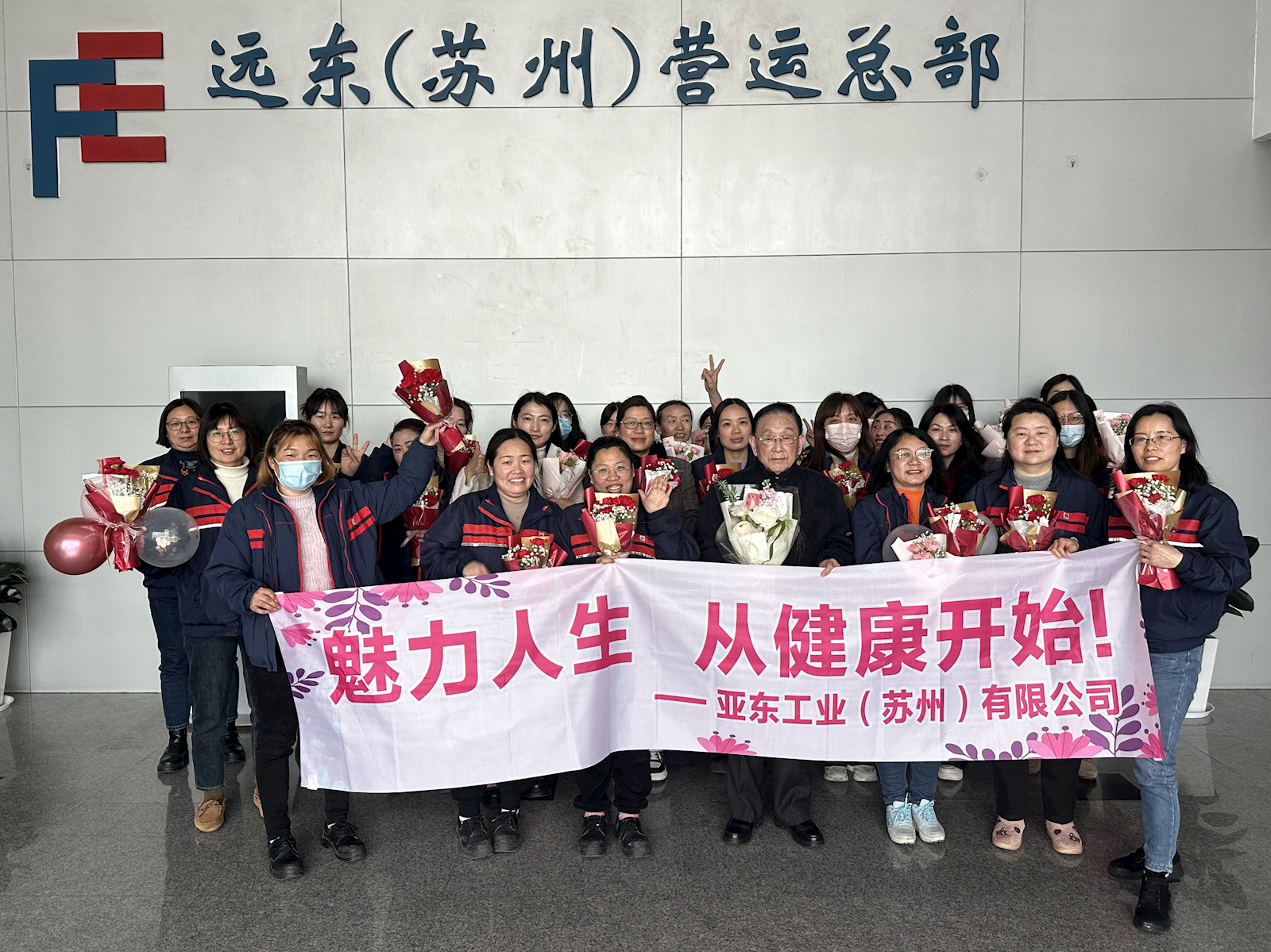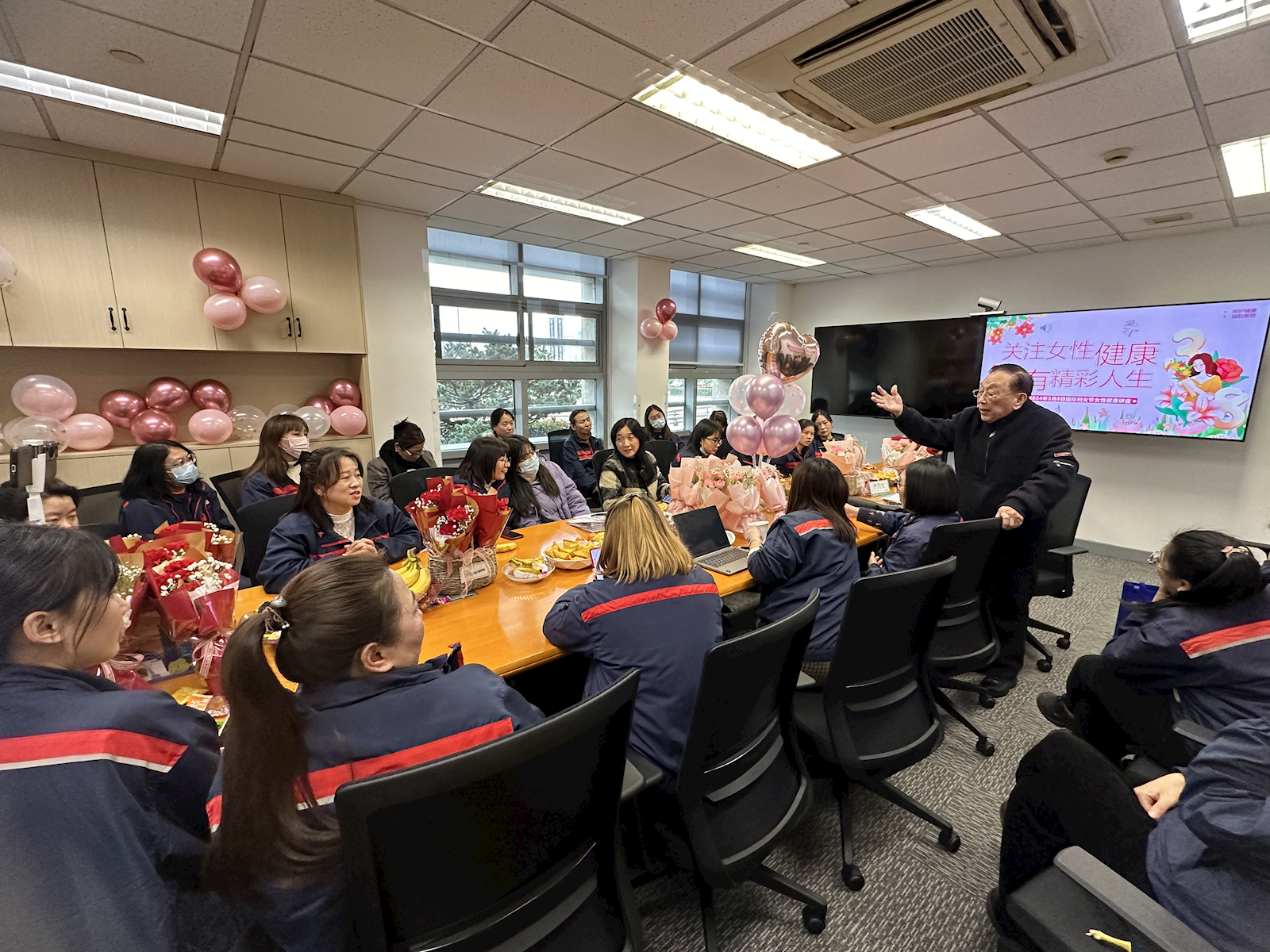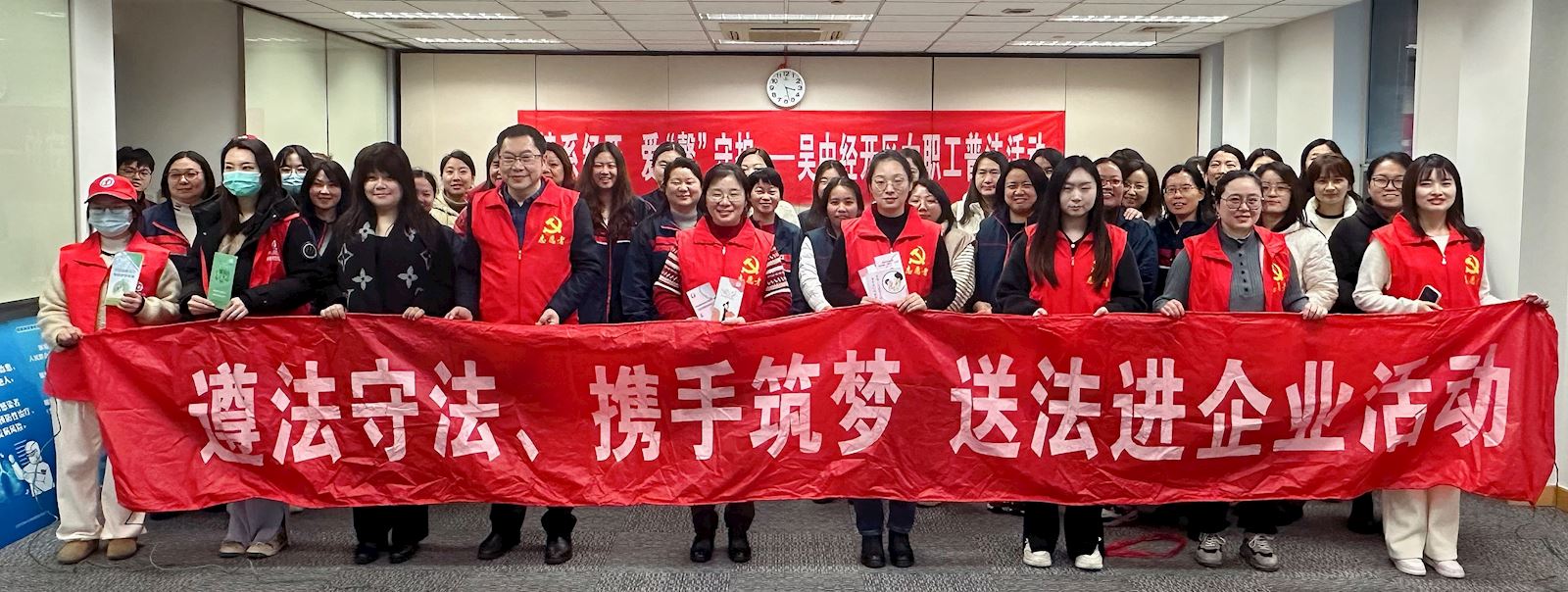Occupational Safety and Health
Employees are FENC’s most treasured assets. The Company never hesitates to devote resources that nurture employees’ mental and physical health. It is the Company’s wish to foster a workplace that offers safety, comfort and friendliness for all employees.
Employee Health Management and Promotion
1. Regular Health Check
• Health management systems
To promote healthy workplace, FENC headquarters, Hsinpu Chemical Fiber Plant and Kuanyin Chemical Fiber Plant established their own health management systems. Staff may log on at any time to review past health check reports and monitor their own health. They may also register online for health promotion campaigns. The system provides health-related knowledge to help employees improve health management.
In addition to establishing health promotion plans in accordance with the regulations, the health management system conducts analysis based on employees’ health reports. When anomalies are detected, a comprehensive monitoring mechanism is designed according to the type and severity of conditions. The mechanism includes classification, tracking and medical consultation in order to provide employees with effective, systematic and continuous health management. During the process, occupational physicians and nurses provide holistic health risk assessment and control, offering complete care to safeguard employees’ health.
• Regular health checkups that are more comprehensive than those required by law
FENC provides health check stipends to expat employees annually and to senior executives once every two years. For general employees, the Company arranges for healthcare providers to offer on-site health checkups for each unit every two years. Employees receiving abnormal test results would be contacted by the healthcare provider for follow-up health tracking. In 2024, 92% of the employees receiving severely abnormal test results returned for the follow-up appointments. A total of 250 senior executives completed the health checkup and received approximately NT$5 million in total stipends.
All caterers at FENC production sites in Taiwan must abide by the health examination regulations for dining services and schedule annual health examinations for the catering staff. The results are provided to FENC for documentation.
FENC production sites in mainland China provide regular health checkups for employees upon completing one year of employment, and a comprehensive health profile is established for each employee. Medical doctors are invited to the production sites to explain employees’ health conditions during the one-on-one consultation. FENC production sites in Vietnam provides annual health checkups for employees, and female employees who wish to also receive gynecological checkups.
FEIW established an occupational health record management system in February 2024. The system allows the plant to quickly query the occupational health records of all employees, including the date, result and report of their health checkups.
2. Health Management for Special Hazardous Operation
To control occupational diseases, FENC production sites established the following control measures targeting hazardous operations:
Health Check and Tiered Health Management for Special Hazardous Operation
Health check items | Number of people being assessed | Tier 1 Management | Tier 2 Management | Tier 3 Management | Tier 4 Management | |||||
Male | Female | Male | Female | Male | Female | Male | Female | Male | Female | |
Noise | 506 | 122 | 253 | 74 | 206 | 42 | 22 | 5 | 25 | 1 |
High Temperature | 141 | 0 | 69 | 0 | 71 | 0 | 1 | 0 | 0 | 0 |
Dust | 248 | 4 | 207 | 4 | 41 | 0 | 0 | 0 | 0 | 0 |
Ionizing Radiation | 20 | 2 | 14 | 1 | 6 | 1 | 0 | 0 | 0 | 0 |
Organic Solvents and Specialty Chemicals | 38 | 16 | 29 | 11 | 9 | 5 | 0 | 0 | 0 | 0 |
Tiered health management is offered to employees based on their conditions. Tier one involves the provision of health information as references. At tier two, the doctors specify tasks unsuitable for certain health conditions in addition to providing the health information. For tiers three and four, employees’ duties and tasks are selected to match their health conditions. The Company conducts site visits to evaluate operational risks and make improvement accordingly. Additional health-related measures include providing adequate PPE and requiring workers to wear PPE properly; labeling restricted zones with entry for authorized operators only; conducting hazard exposure at the operating environment semi-annually and reducing worker exposure; requiring workers to wear radiation dosimeters during radiation operation; installing local exhaust at the testing area; establishing health protection plans for operators with regular health checks for special hazardous operation with tiered management.
At production sites in mainland China, employees susceptible to occupational diseases undergo annual health checks targeting specific occupational hazards with reexamination and follow-ups, where on- and off-the-job health checks are conducted to prevent occupational diseases and ensure labor rights.
FENC’s production sites in Vietnam have arranged advanced healthcare services for workers who are at high risks of occupational hazards. Nearly 80% of the workers at the garment plants are female. Hence, more health resources targeting women’s health are provided. Examples include educational materials on the cervical cancer, breast cancer as well as maternal and newborn care. The plants also collaborate with brand customers to provide consultation services regarding family planning, which has been popular among the female workers.
3. Health Care
FENC operation sites in Taiwan employ occupational health professionals in accordance with the regulatory requirement and have full-time nurses on staff to provide healthcare services to all employees. In addition to providing health promotion activities, health checkups and anomaly management, FENC is also committed to implementing the four major labor health programs to enhance employee health. The Company provides on-site health services through partnerships with its affiliate, Far Eastern Memorial Hospital (FEMH), or contracted occupational medical specialists. Safeguarding employee health is FENC’s responsibility. Therefore, the Company provides a comprehensive range of health services and outreach programs to care for all aspects of employee health.
At OTIZ, resident physicians and nurses provide on-site primary care and consultation for employees at the infirmary during working hours. An occupational health profile is established for each employee to ensure holistic care.
FEIS set up an infirmary in 2024 with health professionals on site every Tuesday and Thursday afternoon to offer services such as consultation and blood pressure tests. The plant also has a good relationship with the nearby community hospital. Once every two months, a general practitioner visits FEIS and provides medical services.
APG Polytech has a full-time nurse on staff to treat injuries and other health issues. The service is available to any employee who seeks medical advice or assistance.
4. Four Major Health Programs and Health Protection for Middle-Aged and Elderly Employees
FENC has developed worker-centric health services in line with the governmental labor care policies and structural shifts in the global labor market. While reinforcing the prevention of occupational injuries and diseases, the Company also implements various health promotion campaigns to improve employees’ self-management and health awareness, offering comprehensive mental health support and urging employees to take proactive steps towards improving mental health. FENC encourages employees to form exercise groups and provides lunch boxes that offer balanced nutrition to help employees maintain health.
As the world embraces an aging workforce, it is vital to ensure occupational safety and health among the middle aged and elderly workers. At FENC, employees from this age cohort undergo tailored health risk assessments. Based on the results, occupational health professionals implement health management programs with regular work ability assessments and provide recommendations such as changing work locations and duties as well as reducing working hours or workload. FENC also offers measures that promote work-life balance through health promotion activities.
FENC production sites in mainland China attach great importance to maternal protection. To care for female employees, those who are nursing may enjoy a one-hour breastfeeding break each day. FEIS and FEDZ provide lactation rooms for female employees who are pregnant or breastfeeding, giving them a private space to rest in comfort and safety while enhancing the sense of workplace happiness.
FENC production sites in Taiwan have been promoting four major health promotion programs aimed to protect employees’ mental and physical health, including the ergonomic hazard prevention program covering musculoskeletal disorders caused by repetitive movements; prevention program for diseases induced by overwork; maternity health protection program; workplace violence prevention program.
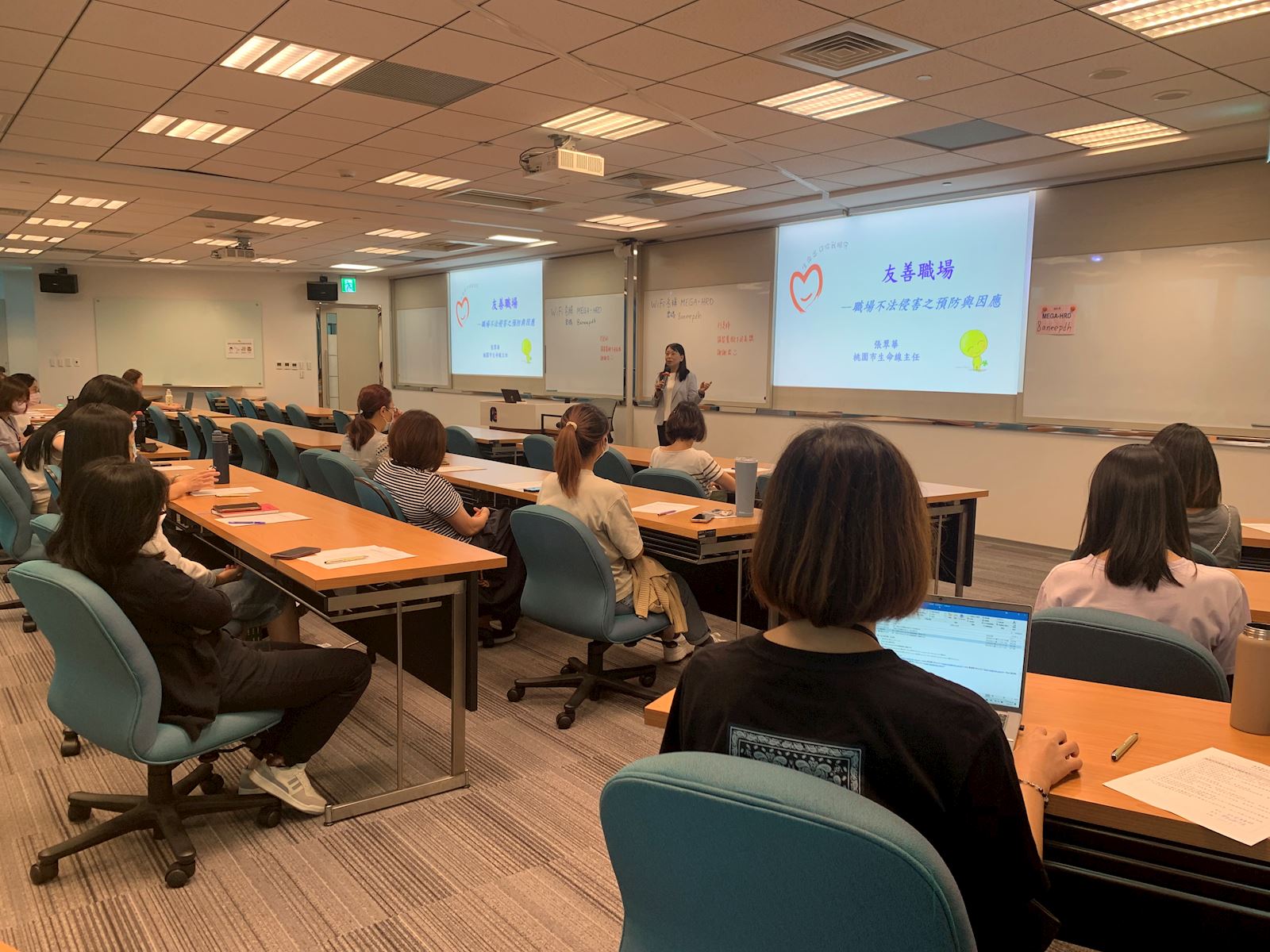
Statistics on Hazard Identification and Risk Assessment With Action Plan
Hazard | Individuals undergoing hazard recognition and risk assessment | Non-hazardous | Potentially Hazardous | Hazardous | ||||
Male | Female | Male | Female | Male | Female | Male | Female | |
Maternity Protection | - | 51 | - | 51 | - | 0 | - | 0 |
| Action plan: Pregnant employees or those returning to work one year after giving birth receive a preliminary assessment form for workplace hazards during and after pregnancy and an employee health self-assessment form. The aim is to evaluate how maternal health is impacted at work. In 2024, a total of 51 female employees participated in the maternity protection program, where healthcare professionals assessed and confirmed associated risks and hazards, and provided health education and information. | ||||||||
Workplace Violence | 2,426 | 829 | 2,405 | 827 | 21 | 2 | 0 | 0 |
| Action plan: FENC has announced the Declaration on the Prevention of Workplace Violence to all employees, and the prevention of workplace violence has been included as part of the employee training. FENC minimizes workplace violence at or outside the work environment by designating safety areas, assigning adequate staff and providing assistance such as stress relief guide and counseling services. In addition, labor and management representatives have established a Workplace Violence Grievance Investigation Team to investigate incidents of workplace violence. | ||||||||
Overwork | 2,501 | 900 | 2,364 | 868 | 132 | 32 | 5 | 0 |
| Action plan: In 2024, a total of 5 male employees were identified as being high-risk; 164 were identified as having low to medium risks, 132 of whom were male and 32 were female. The high-risk employees met with the physicians on site for follow-up interviews and received health guidance, while the low-to-medium-risk employees received emails containing personalized health information, consultation and recommendation with follow-up tracking. FENC also launched the Employee Assistance Programs (EAPs) during the reporting year to provide diversified channels for mental health counseling, including government resources, contracted clinics and FEMH, the FENC affiliate, which offers discounts to FENC employees. | ||||||||
Musculoskeletal Disorders Caused by Repetitive Movements | 2,595 | 915 | 2,528 | 898 | 49 | 17 | 18 | 0 |
| Action plan: The self-assessment form for musculoskeletal disorders was distributed among employees, and a total of 18 male employees were found to be under the influence of ergonomic hazards in 2024. FENC assessed their work activities, confirmed the risk factors through assessment tools, determined appropriate improvement measures and arranged for follow-ups and tracking. A total of 66 employees were identified as potentially being influenced by ergonomic hazards, 49 of whom were male and 17 were female. Those who required medical attention were referred to occupational physicians for medical treatment and consultation. FENC also provided health guidance and inspected the workplace to clarify and evaluate the connection between their illnesses and job duties. After their health conditions were assessed by the physician, the employees received individual consultation, recommendation and follow-up care to track their improvement. | ||||||||
5. Health Programs
• Dual Benefits in Employee Health and Carbon Reduction
The Corporate Management at FENC launched an energy and carbon reduction campaign in June 2024, leading the entire staff to practice low-carbon living and reduce food waste. During the campaign, 285 employees accumulated 173,635 kilometers and burnt 9.55 million calories through walking and running, the equivalent of averting 20,000 kgCO2e in carbon emissions. The campaign also included a collaborative initiative with the canteen, where employees may donate meal boxes they had paid for to other employees through an application. As of the end of 2024, the program had kept 996 meal boxes from going to waste. Through this campaign, the Corporate Management delivered a carbon reduction performance that was twice as much as the set target.
To encourage employees to live a healthy lifestyle, OTIZ held a City Walk campaign on November 9, 2024, inviting employees and their families to explore the city along a 9-kilometer journey on foot. While the participants enjoyed nature in leisure, they also enjoyed the health benefits through walking. A total of 67 participants burned 33,165 calories and contributed 69 kgCO2e in carbon reduction.
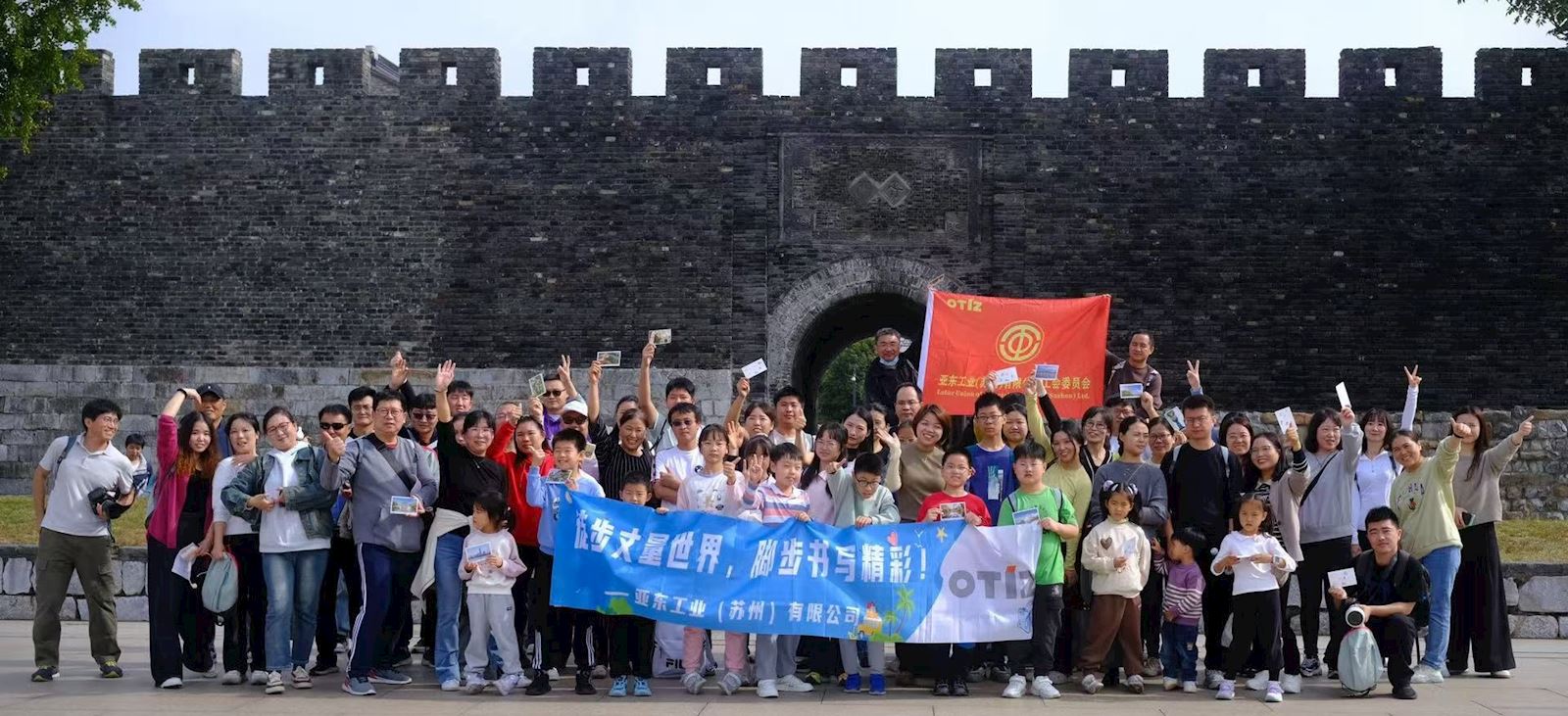
• Healthcare for Employees and Their Families
FEPV organized a special health care project to protect employee health, where representatives from each department participated in a seed teacher program. The program covered topics on nutrition; danger signs during pregnancy; safe contraception; personal hygiene; menstrual hygiene; AIDS; prevention of breast cancer, cervical cancer, liver cancer and lung cancer; sexual harassment prevention; presentation skills; personal finance management; financial planning; prevention of occupational diseases. A total of 50 employees have completed the seed teacher training, ready to spread the knowledge to 11,149 employees, helping them acquire and apply the health information and skills. The project was implemented between May 2023 and the end of September 2024, benefiting not just the employees, but also their family members.
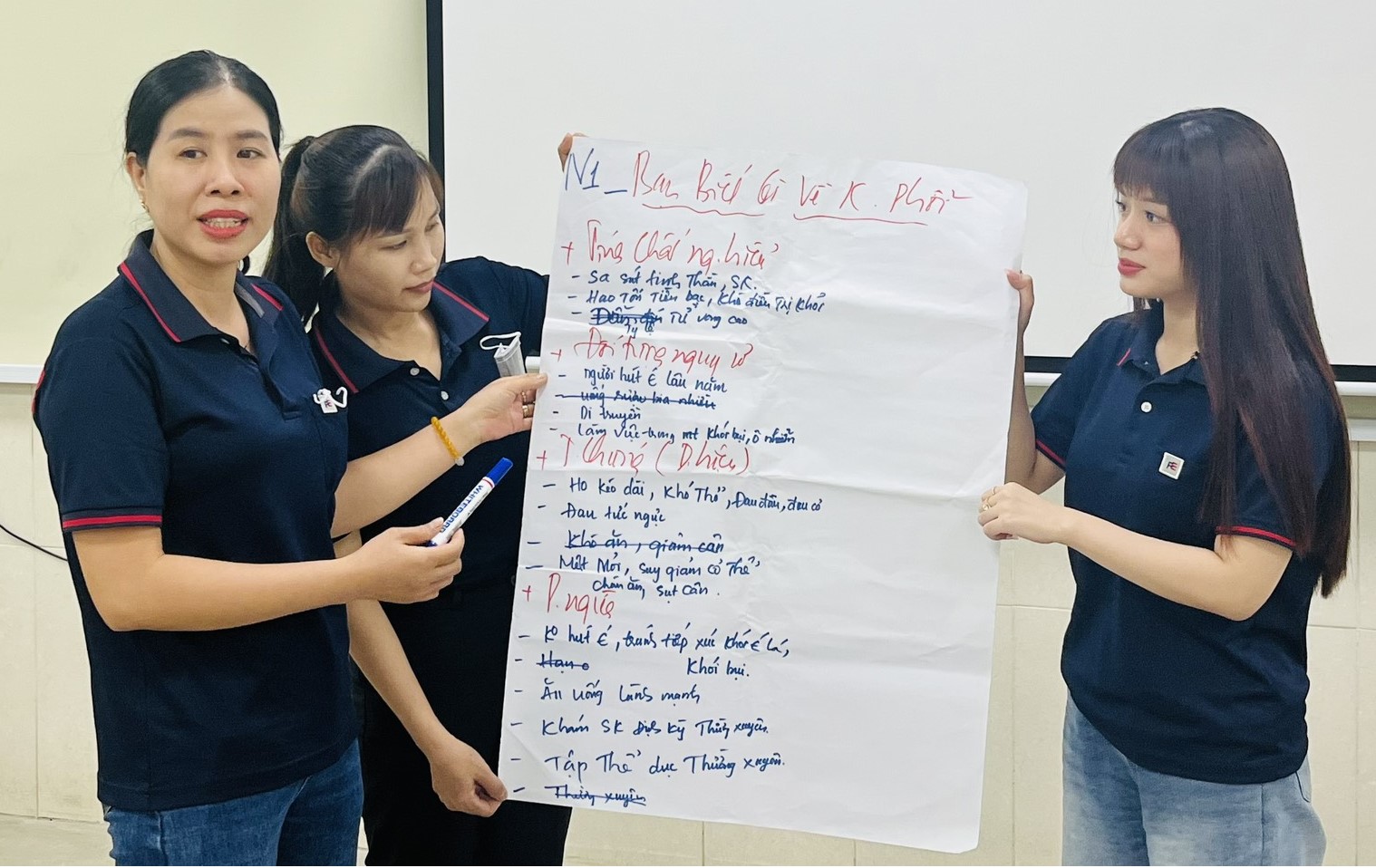
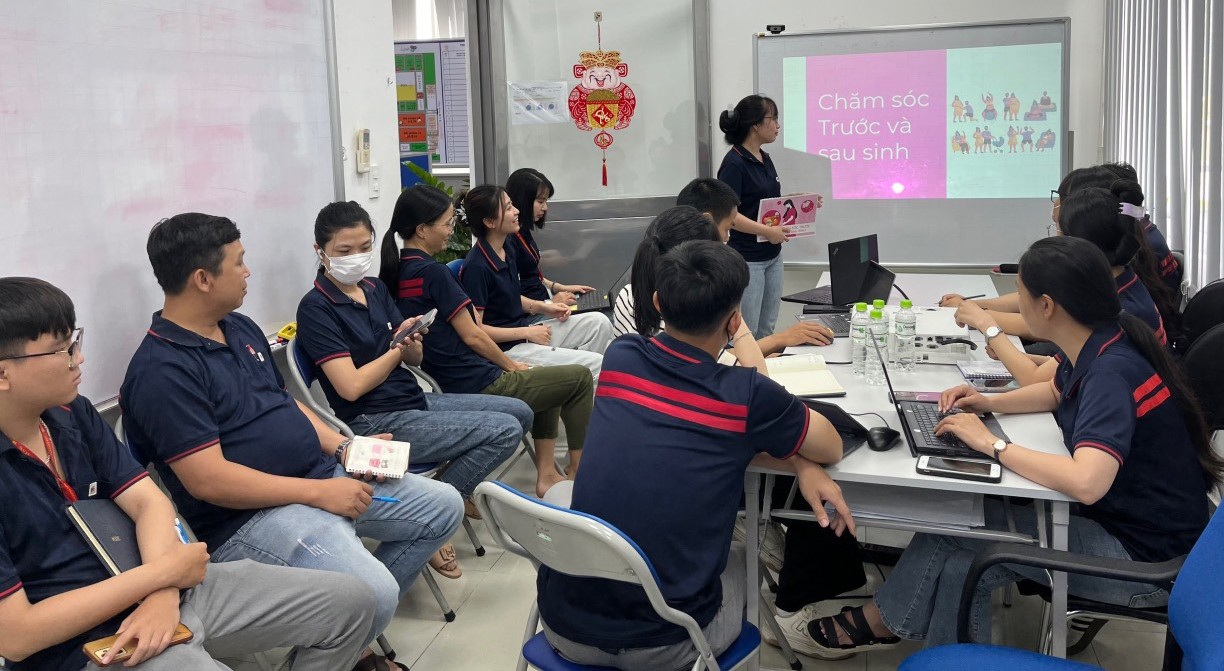
FEAV held a vaccination campaign between November 2024 and June 2025, offering vaccines to employees and their families to safeguard their health. By collaborating with the vaccine center in Vietnam, FEAV administered flu vaccines for an estimated 4,000 employees and their family members.
.png)
• Health Programs for Female Employees
To celebrate International Women’s Day, OTIZ kicked off a women’s health campaign from March 5 to 8, 2024, which featured lectures on general legal knowledge and health topics for female employees. The campaign helped reinforce the awareness and protection of legal rights among the female employees at OTIZ. External experts were invited to the two health lectures to share their knowledge on breast cancer and cervical cancer screening as well as the prevention and treatment of common gynecological diseases. The experts also discussed the causes and preventive measures, helping them acquire additional knowledge on self-care. A total of 110 female employees took part in the campaign.
